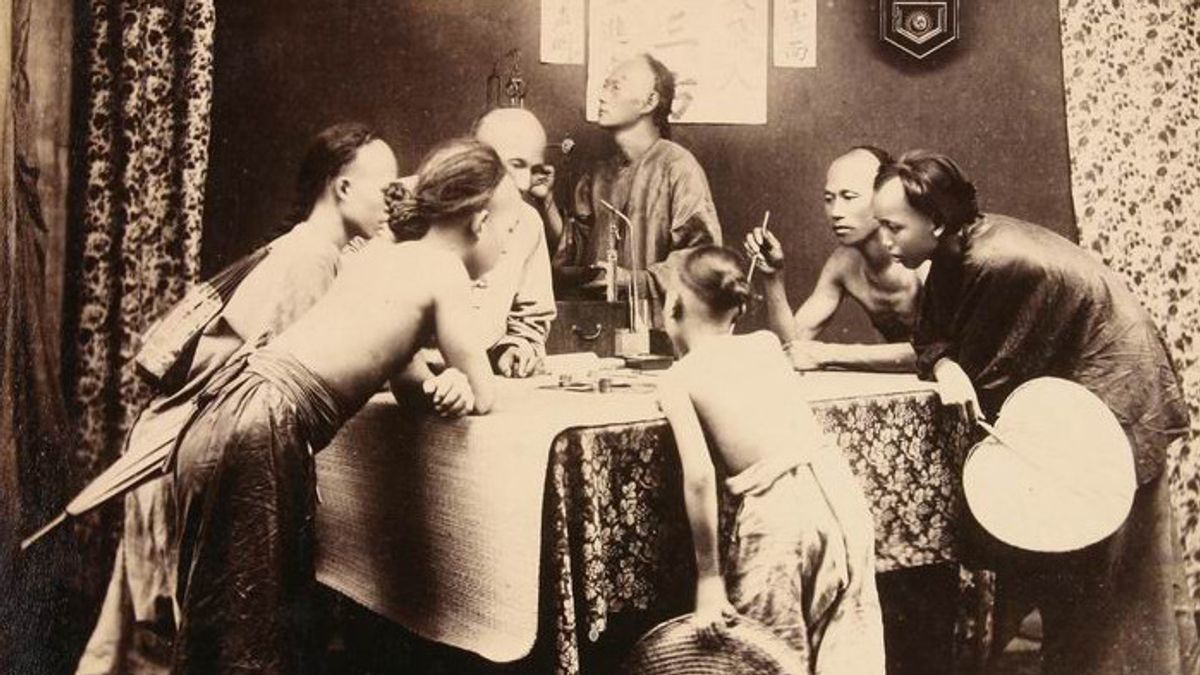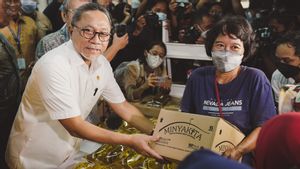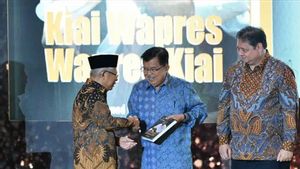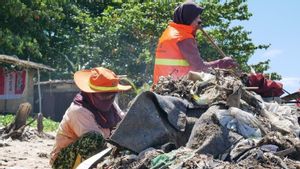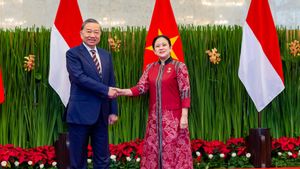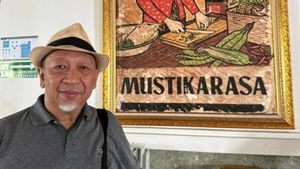JAKARTA - The role of ethnic Chinese in the growth of Jakarta is so great. From the Dutch era, foreign workers (TKA) from China held a role to be the driving wheel of the economy. VOC General Governor Jan Pieterszoon Coen is behind this.
Coen sees the Chinese as human beings with great tenacity and hard work. That trait could make the Dutch a big profit, coen thought. He then opened the doors of Batavia to the Chinese.
Those who come will be welcomed. Meanwhile, the Chinese who don't want to be kidnapped by the Dutch. Traces of Chinese people in The Land of Betawi have been present since Jakarta was still named Jayakarta. In fact, older.
However, there are not so many. It is recorded that upon the arrival of the first Dutch under the leadership of explorer Cornelis de Houtman, the Chinese living in Batavia only filled the eastern edge of the Ciliwung river.
Their services to local government are not very reliable. The Chinese in the region are on average farmers, traders, and distillers. That condition then changed when Jayakarta conquered Coen in 1619.
In addition to turning Jayakarta into Batavia, Coen also made many new breakthroughs. One of them is by making the Chinese the majority citizens in Batavia. Moreover, Coen realized the benefits that would be obtained when his plan to increase the number of Chinese in Batavia materialized.
"Jan Pieterszoon Coen argues that only ethnic Chinese citizens can serve the VOC well. The ethnic Chinese people of Batavia played an important role in the development of Batavia under the VOC economic system, both internal and external trade. This is very beneficial for batavians to obtain foodstuffs," said Hembing Wijayakusuma in the book Mass Murder 1740: Tragedi Berdarah Angke (2005).

The influence of the Chinese in bringing economic benefits made them a strong political position in Batavia. All privileges were granted by Coen to the Chinese who would settle and work in Batavia.
Especially, when Coen chose Souw Beng Kong (1580-1640) as Kapitan of China. Since then, Batavia has become a promising city for the Chinese. So is the Netherlands.
The colonial government then used Souw Beng Kong's hands to take care of the Chinese in Batavia. Afterwards, the wave of Chinese arrivals to Batavia intensified. Coen then formed the Chinese Council.
The council was tasked with regulating all chinese interests, especially in dealing with funerals and burial sites of the Chinese in Batavia. Souw Beng Kong himself within the council had a significant role.
He can't just give advice to the Chinese. But it also decided the Chinese case was brought before the Batavian court. All of that is directly supported by Coen.
"Anyone who intends to build and expand dutch influence, should work with the Chinese people, because they are a tenacious, diligent, and worklike nation. No energy is more suitable for our purposes or that can be deployed equally easily than the Chinese," jan Pieterszoon Coen told his subordinates, quoted by Benny G. Setiono in the Chinese book in The Political Vortex (2003).
The Dutch bring the Chinese
As Coen served as Governor-General of the VOC, the chinese' future ambitions to Batavia were further encouraged. All his efforts and opportunities were used to persuade the Chinese.
One of the steps is to get all Chinese living in Banten, Cirebon and other cities in Java to move immediately. The effort was carried out by the colonial government by directing the Chinese with the exemption of tolls and excise fees.
Coen even gave orders to the head of the Japanese representative VOC office –who was also his friend– Jacques Specx to encourage the migration of The Chinese to Batavia as much as possible.
If necessary, migrate it using the Company's transport vessels. If they were unwilling to travel to Batavia, Jacques Specx was asked to hire the Chinese to the Company on probation.
"In addition, Coen did everything possible to divert all Chinese trade to Batavia by blocking Manila, Macau, and the Chinese coast around Pescadores and Malacca. He also captured Chinese junks sailing on the shipping lanes of Jambi, Banten, Jepara, and other places in the Indian Islands (Indonesia), and took them to Batavia," added Johannes Theodorus Vermeulen in a Chinese book in Batavia and Riot 1740 (2010).
Smooth and rough wayIn persuading the Chinese, Coen used two ways, namely the subtle and crude way. Subtle ways, for example. Coen ordered The Company's officials to treat the Chinese well.
Thus, the Chinese were persuaded by providing large-scale free transport to Batavia. They were also promised a variety of other rights. Meanwhile, the harsh way Coen relies is to kidnap the Chinese.
The instruction is known to have been given by Coen to VOC troop leader Cornelis Reyersz in 1622. Coen asked Cornelis Reyersz to go to China in order to increase trade. If that doesn't work, then he's ordered by Coen to harass the Chinese along the Chinese coast and try to kidnap as many Chinese as possible.
"If there are not enough people in those countries who willingly come to Indonesia, Coen suggests kidnapping them until the required amount is reached. He prefers Chinese because he thinks they are hardworking and don't like war. The plan goes further is the total annihilation of foreign Asian and European voyages in the Indies. For the settlers he proposed to grant shipping and free trade permits under the regulations made by the Company," wrote Bernard H.M. Vlekke in the book Nusantara (1959).
*Read more information about DUTCH COLONIAL OR read other interesting writings from Detha Arya Tifada.
Other BERNAS
The English, Chinese, Japanese, Arabic, and French versions are automatically generated by the AI. So there may still be inaccuracies in translating, please always see Indonesian as our main language. (system supported by DigitalSiber.id)
